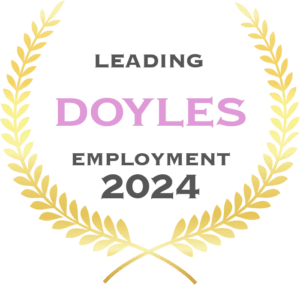
On 20 January 2023, the Fair Work Commission (FWC) issued its decision to amend the Professional Employees Award 2020 (Award) to deal with two issues, namely:
- Hours of work and overtime; and
- Coverage of the Award.
Hours of Work and Overtime
As part of the FWC’s four yearly review of modern awards, the Full Bench found the hours of work and overtime provisions failed to meet the modern award objectives. In particular:
- Full-time professional employees:
- frequently work hours well in excess of 38 per week, either on a regular basis or during peak work periods;
- are usually paid an annual salary that is intended to cover all hours worked;
- often do not have any fixed hours of work;
- are usually not paid any overtime payments for hours worked in excess of 38 hours per week; and
- only rarely granted TOIL for additional or excessive hours.
- A large majority of professional engineers and scientists are paid significantly in excess of the minimum annual wages prescribed by the Award. However, there is a minority of professional engineers and scientists who earn less than the amount they would earn if they were entitled to be paid the hourly rates prescribed in clause 14 of the Award for all hours worked.
The FWC has taken a minimalist approach in amending the Award, namely, for employees paid at or close to the minimum salary rates to provide an enforceable entitlement to remuneration or TOIL for hours worked in excess of 38 per week and a baseline entitlement to additional remuneration for unsociable hours, but which otherwise maintains the degree of flexibility appropriate for professional salaried employment.
The amendments include:
- Ordinary hours of work of 38 per week for which the minimum annual wages prescribed in clause 14 are payable.
- In accordance with section 62 of the Fair Work Act 2009 (Cth) (FW Act), request or require that a full-time employee work overtime (that is, in excess of 38 hours per week) provided that the additional hours are reasonable.
- The employee, subject to (4), (5), and (6) below (and unless (8) below applies), be paid the appropriate hourly rate in clause 14 for all hours worked in excess of 38 in a week in addition to the minimum annual wages in clause 14. This includes work on or in connection with call-backs and work performed on electronic devices or otherwise remotely.
- A TOIL model clause.
- A penalty rate of 125% to be payable for all hours worked (whether ordinary or overtime hours) before 6.00 am or after 10.00 pm on any day, Monday to Saturday. For casual employees, this is in addition to their casual loading.
- A penalty rate of 150% to be payable for rostered hours (whether ordinary or overtime hours) worked on a Sunday or public holiday. Again, for casual employees, this is in addition to their casual loading.
- The employer to keep records of all hours worked by an employee in excess of 38 per week, or worked before 6.00 am or after 10.00 pm on any day Monday to Saturday, or worked at any time on a Sunday or public holiday, for the purpose of compliance with the requirements of (3), (4), (5) and (6) above. This is necessary because the requirement in reg 3.34 of the Fair Work Regulations 2009 (Cth) (FW Regulations) to keep records of overtime records only applies ‘if a penalty rate or loading (however described) must be paid for overtime hours actually worked by an employee’. The FWC does not intend to require that a penalty or loaded rate be paid in respect of overtime except where the requirement in either (5) or (6) applies.
- Exemption clause: the requirements in (3), (4), (5), (6), and (7) above will not apply in respect of employees covered by the Award who have a contractual entitlement to an annual salary that is 25% or more in excess of the minimum annual wage for the appropriate classification in clause 14.
Coverage of the Award
In Zheng v Poten and Partners (Australia) Pty Ltd [2021] FWCFB 3478, the Full Bench observed that the Award classifications are expressed in highly generic terms and do not describe with any specificity the job functions required to be performed at each level, making it difficult to ascertain coverage when applying the well-established ‘principal purpose test’.
The Full Bench, in this decision, agreed with Zheng, that the ‘principal purpose test’ is singularly ill-suited to determine the application of the classification, and the uncertainty this has caused has led to excessive litigation about the coverage of the award in individual cases.
The FWC deemed it necessary to clarify and elucidate the coverage of the Award in a manner consistent with the current classifications without expanding or contracting the coverage of the Award.
Consequently, the FWC intends to add a provision to Schedule A of the Award to clarify that the Award applies to all employees performing professional engineering duties, professional, scientific duties, professional information technology duties, or quality auditing, unless the person holds a position which is principally managerial in nature.
When Do These Changes Take Effect?
Hitherto, the determination has not yet been finalised, and the FWC has not announced when the amendment to the Award will take effect. The FWC has allowed further submissions relating to its decision to amend the Award until 10 February 2023. However, it is likely the amendments will take effect in the coming months.
Next Steps
While the determination is not yet finalised, we recommend employers:
- Develop and implement appropriate plans ahead of these changes taking effect;
- If your organisation is in the information technology industry, quality auditing industry, telecommunications services industry or if it employs scientists or engineers, review your organisation’s award coverage;
- Audit your current employees’ award coverage and classification levels to ensure an employee has been correctly classified under the Award;
- Review your current professional employee’s contracts and remuneration to identify if they meet the exemption clause in (8) above. Otherwise, an employer will need to implement a timekeeping procedure, configure its payroll system to pay the applicable penalties and maintain accurate employee records and payslips in accordance with the FW Act and FW Regulations;
- Update your employment agreements;
- Review your overtime practices, policies and procedures.
If your business or employees are covered by or might be covered by this industry and occupational Award and need advice or assistance with the above changes, please contact us. We’re here to help.











